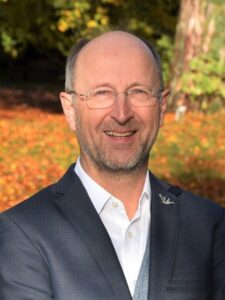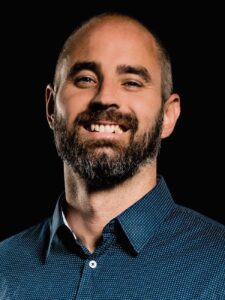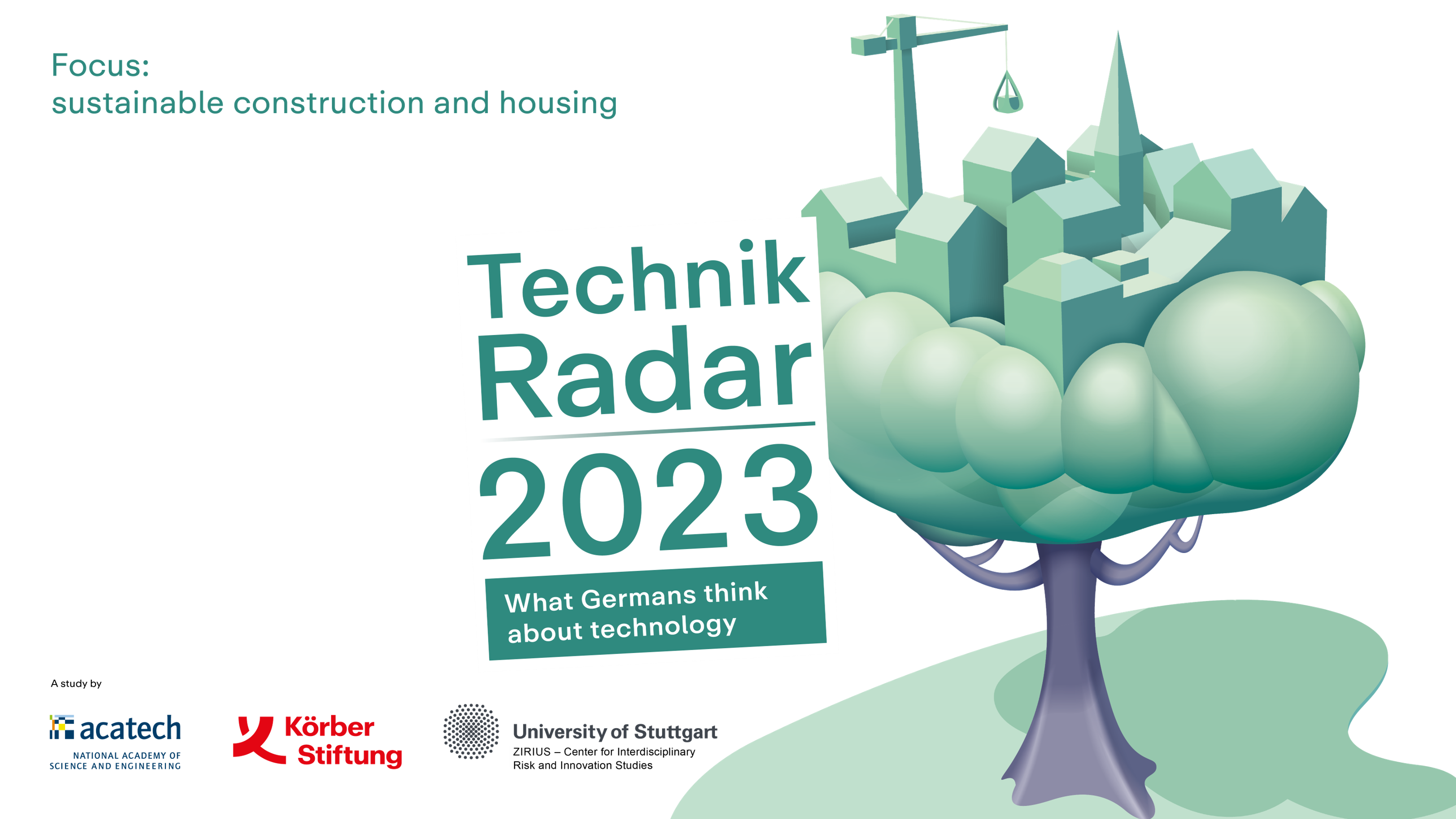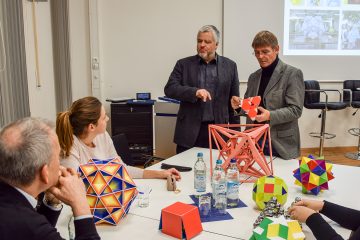Yes to digitalisation, no to data sharing
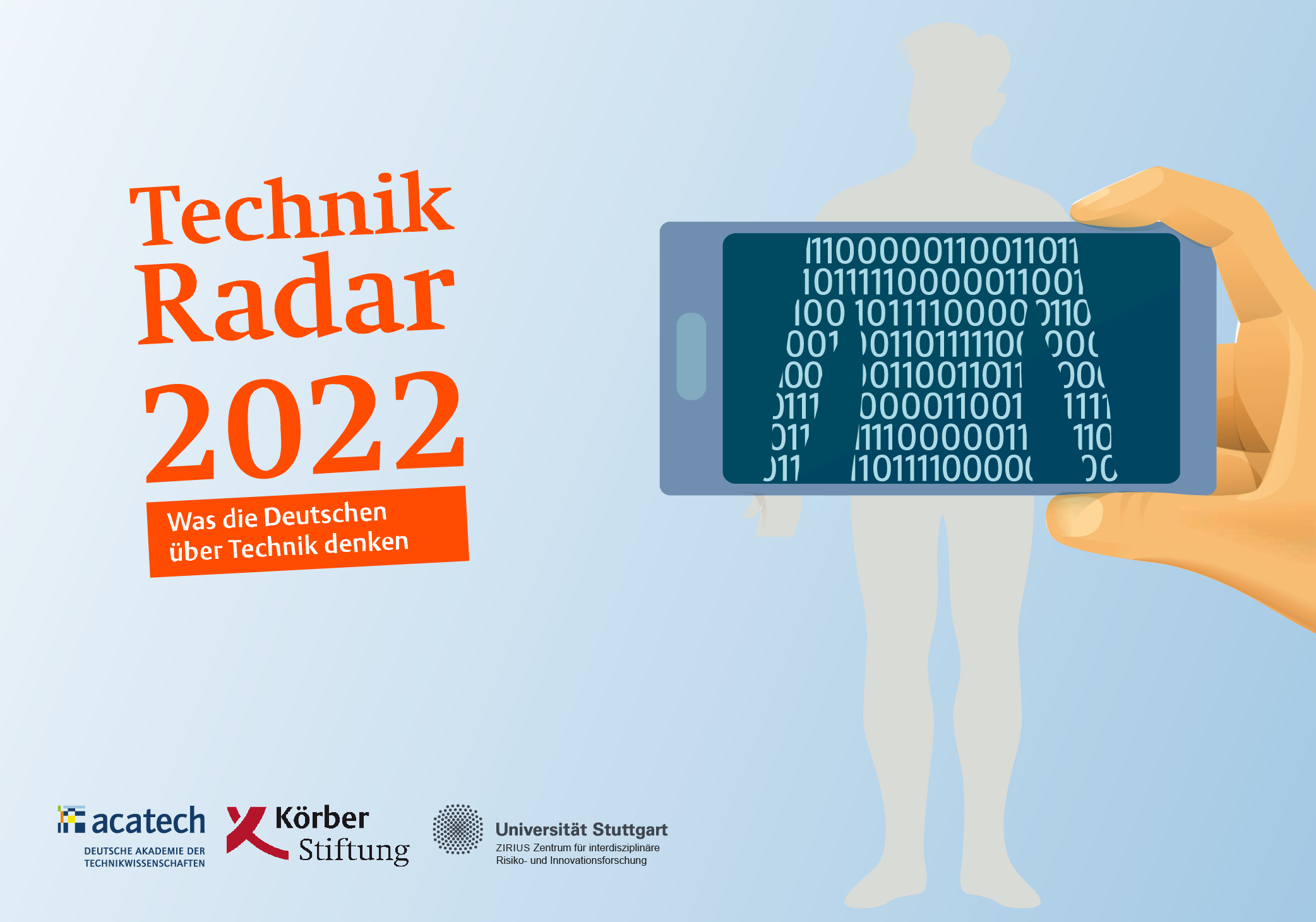
Munich, 11 May 2022
This year’s edition of the TechnikRadar from acatech and Körber-Stiftung reveals Germany’s views on digitalisation in healthcare. This time, an online survey of doctors was conducted alongside the representative survey of the population. The results of both surveys show that some doctors and many patients feel there is insufficient transparency surrounding the use of health data.
Working from home, video conferencing, telephone doctor’s appointments – the coronavirus pandemic has brought digitalisation to the fore. The TechnikRadar 2022 (Technology Radar) shows that Germans rate the benefit of digitalisation in various areas of society and business higher than the risk. On a scale from 0 (not at all beneficial) to 10 (very beneficial), the respondents put the benefit of digitalisation in healthcare at 7.5 and the risk at only 4.6.
In principle, Germans feel that technology solves more problems than it creates: in 2017, 35.5 per cent of interviewees agreed with the statement “Technology creates more problems than it solves” whereas, in this year’s TechnikRadar, only 23.1 per cent of respondents did so.
However, Germans are cautious when it comes to sharing health data. Half of those surveyed (50.1 per cent) object to sharing their identifiable or anonymised personal data with private research facilities. Conversely, more than 80 per cent of respondents would make their data available to their family doctor, consultant or hospital. This makes a finding of the survey of 200 doctors, which is also a part of the TechnikRadar 2022, all the more interesting: only 13.1 per cent of doctors surveyed know who has access to digital patient data and what data are accessed.
Electronic patient record (ePA): one quarter of respondents are not aware that it exists
Is concern about the protection of sensitive data preventing the use of the electronic patient record (ePA) introduced in 2021? In principle, interest in the ePA is there, as 46.8 per cent of interviewees intend to use it. However, 24.4 per cent of respondents are completely unfamiliar with the ePA and only 5 per cent are currently using it. 20.2 per cent of the sample do not want to use the ePA due to data protection concerns (50 per cent) and lack of clarity over who can access what data (53 per cent). This is a sobering result for those in favour of the ePA, who expect the new project to increase efficiency and quality in healthcare as well as improve the opportunities and options in research and care.
Doctors, too, are essentially in favour of the ePA: in the online survey of doctors, 54.7 per cent stated that the advantages of the ePA outweigh the disadvantages. However, when asked if their own interests are being given adequate consideration in the digitalisation of healthcare around two thirds of doctors surveyed (66.5 per cent) disagreed.
Doctors are highly trusted
A growing proportion of Germans consult the Internet first about their health issues: 27.2 per cent of the sample do online research before going to their doctor. Almost half (45.3 per cent) feel capable of finding answers online to their questions about health and 63.2 per cent believe they can appraise this information.
However, doctors are not overly enthusiastic about this new digital health literacy. Almost one third of doctors surveyed (30.7 per cent) believe that digitalisation is compromising the doctor-patient relationship. The majority (59.5 per cent) is of the opinion that patients are out of their depth both when it comes to using digital content and also interpretation.
However, people still trust doctors the most, especially when their diagnoses are based on years of experience: 82.7 per cent of the sample regard such diagnoses as “appropriate” or “fairly appropriate”. Conversely, not quite half of respondents (45.4 per cent) consider medical diagnoses on the basis of databases appropriate. And only 27.5 per cent of interviewees rate AI-based diagnoses as positive.
Comments about the TechnikRadar 2022
Cordula Kropp, Scientific Project Manager and sociologist from the Center for Interdisciplinary Risk and Innovation Studies at the University of Suttgart (ZIRIUS): “Our survey shows that more and more Germans are taking their health into their own hands. They do online research after seeing the doctor, use health, fitness and nutrition apps and feel a personal sense of responsibility about doing something for their mind and body. This cohort generally has a high standard of digital health literacy, which is helpful in using the electronic patient record (ePA) and the contact tracing app. Many people with more traditional values and the less well educated are losing out on these opportunities.”
Tatjana König, member of the Executive Board of Körber-Stiftung: “The healthcare sector is facing entirely new choices when it comes to highly sensitive data. Change will only happen if all stakeholders – from doctors to patients – are confident that there are going to be major benefits, and the opportunities outweigh the risks. We mustn’t leave people alone to consider these important choices. Now more than ever is the time to provide more guidance about consequences, uncertainties and fears.”
Ortwin Renn, TechnikRadar Co-Project Manager and acatech Executive Board member: “Less red tape, greater patient sovereignty, personalised treatments – digitalisation in healthcare opens up various possibilities. At the same time, it’s clear from the TechnikRadar 2022 that the various healthcare stakeholder groups have different hopes and fears. For example, patients want more transparency surrounding treatment while doctors fear a growing datafication of the doctor-patient relationship. These differing needs must be taken into consideration in the process of transformation at hand.”
About the TechnikRadar 2022
The TechnikRadar is an annual representative survey of the German population, developed in line with standards in the social sciences and evaluated using empirical social research methods. It is conducted by acatech – National Academy of Science and Engineering, Körber-Stiftung and ZIRIUS – Center for Interdisciplinary Risk and Innovation Studies at the University of Stuttgart. It serves as a long-range early-warning system, flagging technological wrong turns in good time and pinpointing special areas where communication is needed.
Between 24 June and 20 July 2021, 2011 randomly selected German speakers over the age of 16 and living in Germany were interviewed by telephone by INFO GmbH Markt- und Meinungsforschung. An online survey was specially conducted to obtain the views of 200 doctors.


